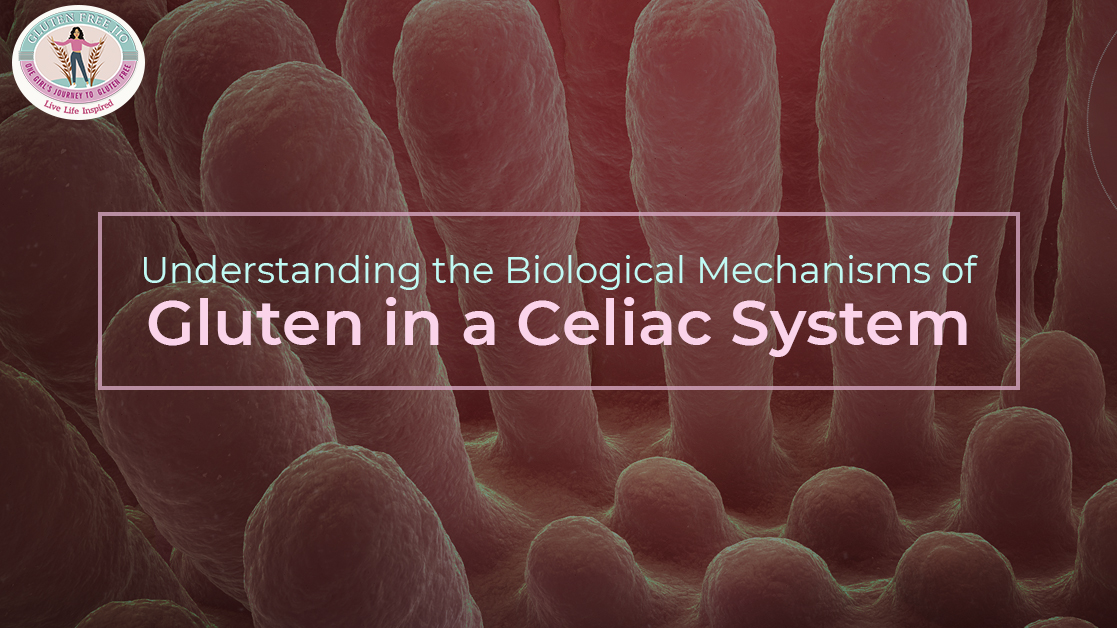Understanding the Biological Mechanisms of Gluten in a Celiac System

Celiac disease is counted among the most common chronic inflammatory. To begin with, celiac disease can be defined as an autoimmune pathology of the small intestine in response to gluten in genetically-susceptible individuals. The body generates an immune when a certain amount of gluten peptides enters the intestinal mucosa, which initiates an inflammatory cascade. While some fragments of the gluten peptides are toxic, others can be immunogenic. The toxic peptides induce mucosal damage, whereas the immunogenic ones are capable of stimulating genetic factors.
There is not one, but two ways in which these peptides trigger a celiac sufferer’s immune system. One affects the epithelium directly, while the other represents the adaptive immune response involving cells that recognize gluten. Several studies suggest that gluten is a stronger trigger of Zonulin, an inflammatory protein, in some individuals. Considering the fact that gluten cannot be digested completely by any human, consumption of gluten can be slightly problematic for those who present a Zonulin response to it. Here, it is important to note that the inflammatory protein called Zonulin is found in high levels in the blood samples of celiac as well as non-celiac, gluten-sensitive individuals.
The Site of Damage
After a deep dive into how the biological mechanisms work, we have come to the conclusion that it the intestine that is most affected by gluten ingestion. When people with celiac disease consume gluten beyond a specified limit (which is very little), their immune system reacts by damaging the intestine’s nutrient-absorbing structures called villi, thus, taking away from them their ability to absorb iron, vitamins, and a lot of other nutrients. Not surprisingly, this gives rise to a plethora of symptoms, deficiencies, and health problems.
The doctors and researchers suggest people with autoimmune diseases and inflammatory conditions avoid consuming gluten at all costs. Furthermore, this inflammation in response to gluten, leaky gut, microbes and toxins more often than not results in chronic inflammation.
Fixing the Damage
As of now, there are not many ways to repair the damage caused by gluten. The least you can do is be on a strictly gluten-free diet and heal your leaky gut.
There are several supplements that have proven to address intestinal permeability. Some of these include glutamine, fish oils, vitamin D, colostrum, turmeric, Pre and Probiotics. Even though each of these basic nutrients modulates genes to reduce inflammation achieving a similar end goal, they each work in different ways. This pleiotropic approach, thus, has proven to be rather useful in ensuring success. Truth be told, one has to be on a strict gluten-free diet—without exception—to treat a gluten-related disorder and must remain extremely careful about not triggering more problems. A lot of people live under the belief that consuming some gluten once in a while will pose no harm to their gut when, in fact, they are putting themselves in grave danger by doing so.
While you are on a gluten-free diet, it becomes important to ensure that you are meeting all your nutritional requirements. In order to take adequate measures to protect yourself against the nutrient deficiencies associated with going gluten-free, you should reach out to a nutritionist and learn the basics of this massive lifestyle change. Professionals such as a CGP, Nutritionists, trained Registered Dieticians, and even Health Coaches for that matter, are invaluable in supporting a seamless transition into a new way of eating. One good practice is to eat different colours of the rainbow at every meal, every day as it is very likely to be helpful in restoring balance to your gut health and rebalance your immune system.
If you do not have access to professional help for any reason, you can start by avoiding wheat (gluten), dairy, and added sugar for a month, and replace these with nutrient-dense organic foods such as quinoa, amaranth, vegetables, and quality meats. You might want to gauge how you feel. Monitor whether your weight is better managed, your hands and feet no longer feel cold, and if you can think more clearly. If the answer to most questions is a ‘yes’, feel free to continue to eliminate those offending foods and eat a varied diet rich in nutrients. If you reintroduce and notice a problem, it will be easy to identify which foods, in particular, are inflammatory to you.
The effect gluten can have on a celiac system is significant, but the good news is, with a little effort, most consequences are avoidable.
 MY JOURNEY
MY JOURNEY About Me
About Me Early life
Early life Diagnosis
Diagnosis CELIAC DISEASE
CELIAC DISEASE Symptoms & Diagnosis
Symptoms & Diagnosis Treatment & Follow Up
Treatment & Follow Up GLUTEN - FREE LIVING
GLUTEN - FREE LIVING At Home
At Home At School
At School At Social Events
At Social Events
 Grocery Shopping
Grocery Shopping COMMUNITY OUTREACH
COMMUNITY OUTREACH Gluten Free Meetup
Gluten Free Meetup Workshops
Workshops Webinars
Webinars COVID-19 Camps By Gluten Free Jio
COVID-19 Camps By Gluten Free Jio  Mid Day Meal
Mid Day Meal Beyond Celiac
Beyond Celiac Real Stories of Celiac
Real Stories of Celiac RESOURCES
RESOURCES Restaurant Dining Cards
Restaurant Dining Cards Recipes
Recipes Gluten Free eBook
Gluten Free eBook Gluten Free Jio App
Gluten Free Jio App RECOGNITION
RECOGNITION TRAVEL DIARY
TRAVEL DIARY



